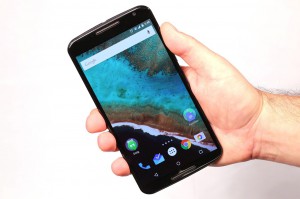Wireless
Look out Verizon and AT&T– there’s a new kid in town.
For years, there have been rumors of a brand new wireless carrier jumping into the ring currently occupied by the “Big 4” (Verizon, AT&T, T-Mobile and Sprint) in the United States–and according to this post by The Wall Street Journal, Google will finally confirm that it’s throwing its hat into the ring as early as tomorrow. According to the article, Google has “teamed up” with Sprint and T-Mobile to give its Nexus 6 users (initially) the choice of using Google as their carrier, rather than one of the “Big 4.” By doing so, Google will only charge customers for the data they use per month, as the average American leaves around $28 of unused data on the table each month in the current environment. I think this is a great move for Google, and gives customers more choice when choosing a wireless carrier that offers the most value for them. Because of the Nexus 6’s hardware, it can switch between the T-Mobile GSM network and the Sprint CDMA network (and both carrier’s 4G LTE networks) to give users the best coverage possible wherever they go. I think the key takeaway is that Google is trying to make data connectivity and Internet access more efficient, cheaper, and more accessible to more people–and that’s a good thing. While I think it’s obvious that Verizon and AT&T are the target for this initiative and will probably be disrupted, I also think cable providers like CenturyLink, Verizon FiOS and Time Warner Cable will also be affected. If mobile data continues to get cheaper and cheaper, people may rely less on their home-based internet connections to connect to the web, or they may drop cable TV completely in order to stream on the go with their cell-tower-connected devices. Are there other industries that might be disrupted? Would you switch to Google if you had a Nexus 6–or if they eventually made the service available to iPhones and other non-Nexus 6 devices?
Peer-to-Peer Wireless Is Increasing Competition Worldwide
Most places around the United States have an incredibly limited number of ISP’s from which to choose their internet service. This means that a few big players control the pricing and the actual content that passes through their bandwidth. However, in a number of other countries including Spain and Uganda, private companies and individuals have worked on peer-to-peer networks that provide fast internet while usurping the prices of enormous corporations. This technology could disrupt the internet service provider market by providing a similar service at a substantially lower price. If so, this would cause current players in the market to actually compete instead of largely just divvying up the service geographically. This would also result in a significant step for net neutrality proponents because big ISP’s would no longer be able to monitor data so closely.
How else do you think that delivering internet through a peer-to-peer connection might affect the market? Do you see any negatives?


